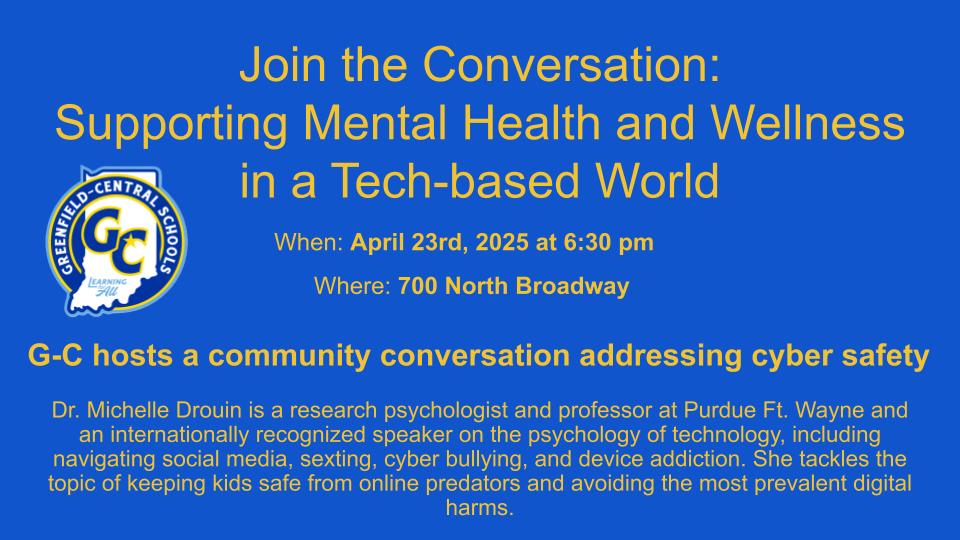
Parenting is hard.
But parenting in today’s digital age– “brutal,” says Greenfield mom Becca Steuer.
Fortunately, Steuer and many other Greenfield-Central parents are finding encouragement this school year with resources on how to navigate smartphones, tablets, anxiety and more.
Greenfield-Central schools have opened book clubs focusing on anxiety in today’s digital age, bringing parents and teachers together in community.
Coming up this Wednesday, April 23 is a community-wide discussion featuring internationally-recognized speaker Dr. Michelle Drouin.
“Join the Conversation: Supporting Mental Health and Wellness in a Tech-Based World” is at 6:30 p.m. April 23.

Parents, caregivers and community members alike are encouraged to learn about the psychology of technology, including how to navigate social media, sexting, cyber bullying and device addiction.
The presentation is just one step GC schools have taken to help families.
Robin LeClaire, GC director of student services, said educators are seeing students with addictive behaviors toward screens. Providing book groups and events opens the door to finding solutions together as a community.
GC teachers are even cutting back on the screen time they use in the classroom.
“A school’s responsibility has long been to educate the community, not just the children,” LeClaire said. “We bring them information– we’re not telling parents what to do at home. We’re bringing awareness so they can make an informed decision. And we’re also letting parents know why our practices may be changing, based on research.”
Wednesday’s event will bring even more resources to parents. Drouin is a research psychologist and a professor at Purdue University Fort Wayne. Her presentation will tackle the topic of keeping children safe from online predators and avoiding other digital dangers.
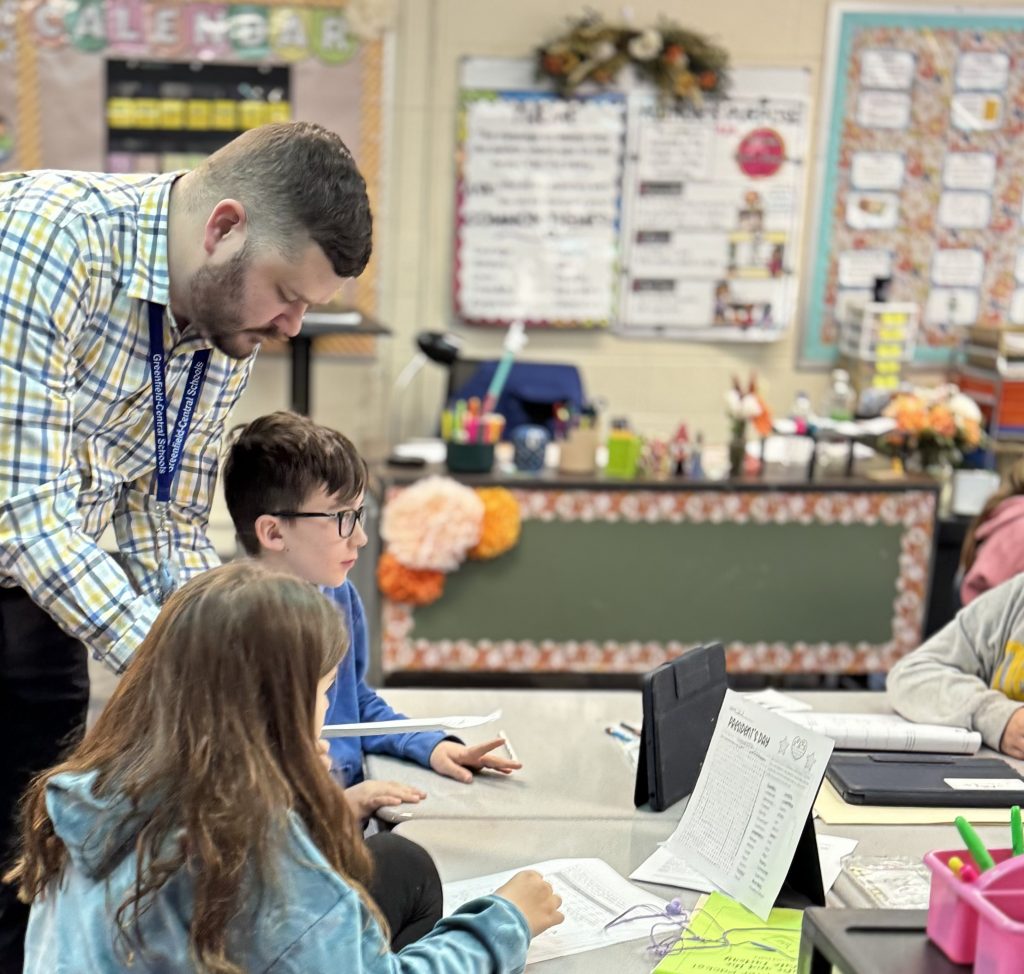
Back at the beginning of the school year, Greenfield Intermediate School and Maxwell Intermediate School started book studies on “The Anxious Generation” by Jonathan Haidt. The New York Times No. 1 bestseller focuses on how the “great rewiring of childhood is causing an epidemic of mental illness.”
Mental health of adolescents has plunged since the early 2010s, according to the author; rates of depression, anxiety, self-harm and suicide rose sharply, more than doubling by many measures.
GC schools have responded by digging deep into the discussion. Indiana state law now requires phones to be put away during the school day unless they’re explicitly used for instruction. Some parents and students were upset about that, LeClaire said, but teachers have noticed an improvement in the classrooms.
“It’s been eye-opening to staff and parents, I think, and just seeing what long-term effects there may be if we have kids on the screens too much,” she said.
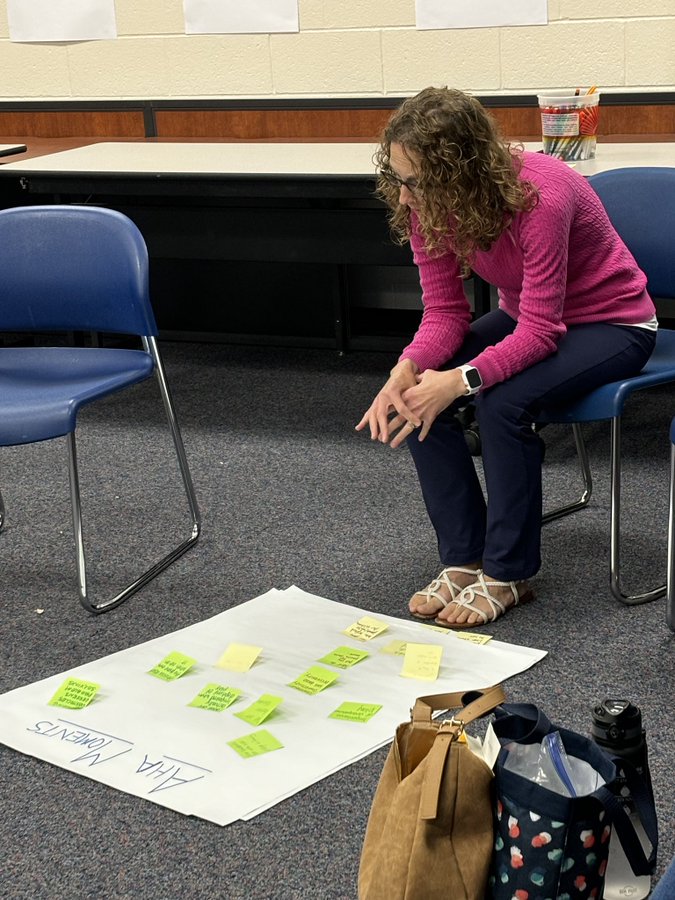
Additionally, GC schools are reassessing how much they use tablets in the classroom. Young elementary students no longer bring their iPads home, for example, and they’re used only occasionally in the classroom.
The book clubs at the intermediate schools, LeClaire added, have proven to be helpful.
Parents like Becca Steuer, for example, have learned that the “brutal” parenting in the digital age is a bit easier when there are others to confide in. She’s enjoyed the book club at GIS.
“I’m constantly messing it up, but I think the more time we spend learning about these crucial topics will help the next generation in the long run,” said Steuer, whose kids are 13 and 10. “I think we’re all just out here doing the best we know how and it’s always good to know that we aren’t out here alone! I am constantly bending the ears of parents that are further along in their parenting journey, and this group definitely has those people.”
GIS Principal Bronson Curtis said the group met monthly. As they became more comfortable with each other, discussions became ever-more insightful. They began to talk about how parents, teachers and administrators can support each other as a community, and navigate the digital world safely and responsibly.
“These discussions have been incredibly valuable in bridging the perspectives of home and school,” Curtis said. “As a result, we’ve seen an increase in after-school opportunities and deeper collaboration among parents who are interested in delaying or limiting technology use in thoughtful, structured ways.”
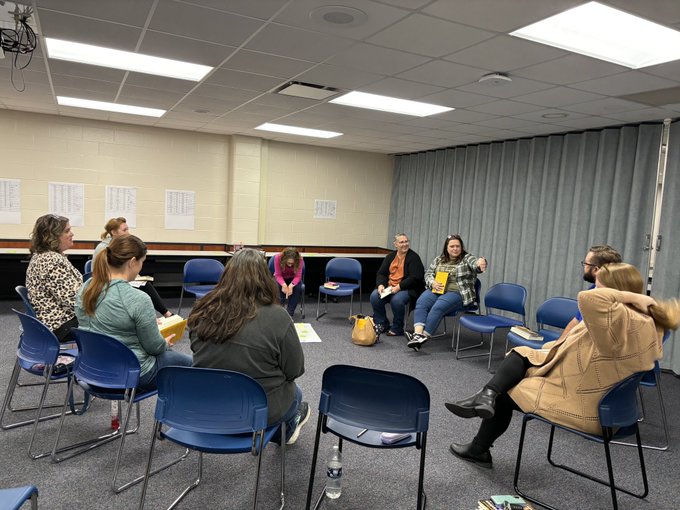
At MIS, Principal Lisa Leliaert said the book club met three times this year. It’s been helpful to her both as a principal and as a parent.
“One of the most important ideas I have learned from the group discussion is how other parents have handled the social pressure kids have to engage in social media, and how parents monitor their kids’ interactions using apps and tech tools,” Leliaert said. “We have had in-depth discussions about how to balance giving kids enough freedom to learn some life lessons and build independence, while still keeping a close eye on how they are using technology.”
Heather Toney, a local mom and also GC teacher, said she joined the club to learn from other like-minded parents with similar values when it comes to technology and parenting. Toney said her kids– ages 11 and 8– share a flip phone and each have a tablet, but for the most part they prioritize screen-free play.
“We want to keep our children young and we want to be the primary influence in their lives as long as we can, and the reality is that once we place a smartphone in their hands, we are opening their worlds to far more than we’ll be able to control,” she said. “For now, we believe this is the best choice for our family.”

Parents say they’re also considering their own screen time, and how to balance that with prioritizing family life.
“I was shocked at how addictive phones are to this next generation of children,” Toney added. “It made me pause to look at my own phone use. I learned that kids often feel like a second priority in their own parents’ lives: right behind a phone.”
Jamie Thompson agrees. The book study made her realize her own addiction to social media and the dopamine hit when someone “likes” her comments.
Both a mom and a second grade teacher at Harris Elementary School, Thompson said she encourages parents to understand the topic; read the book; and talk to their kids about the importance of being in the physical world.
“The book talks a lot about how we’ve gone away from a play-based childhood to an electronic childhood and that has really harmed kids both socially and emotionally, as well as physically and academically,” Thompson said. “So in my classroom, I still use the device some but I’m using it significantly less than what I was using it before and I’m really trying to give my students these opportunities for social, behavior and academic learning outside of digital.”
GC Superintendent Dr. Harold Olin said the book study has been eye-opening for GC staff members and parents. Although there are numerous advantages to digital devices, there are also clearly obstacles that parents need to be aware of.
And while the school year is about to wrap up, the discussion will continue into the future. At GIS, for example, Principal Curtis is already looking into more books to discuss with parents in the 2025-2026 school year.
LeClaire says it’s never too late for parents to join the conversation. Wednesday’s community presentation is a great place to start. The free event will be located at the school’s Educational Services Center, 700 N. Broadway St., Greenfield.
“I hope we can have a great turnout, and I hope this is the beginning of a long series on learning together as a school community and a family community about the effects of technology and devices of young people, so we can turn the trend around with mental health,” LeClaire said.
By Maribeth Vaughn
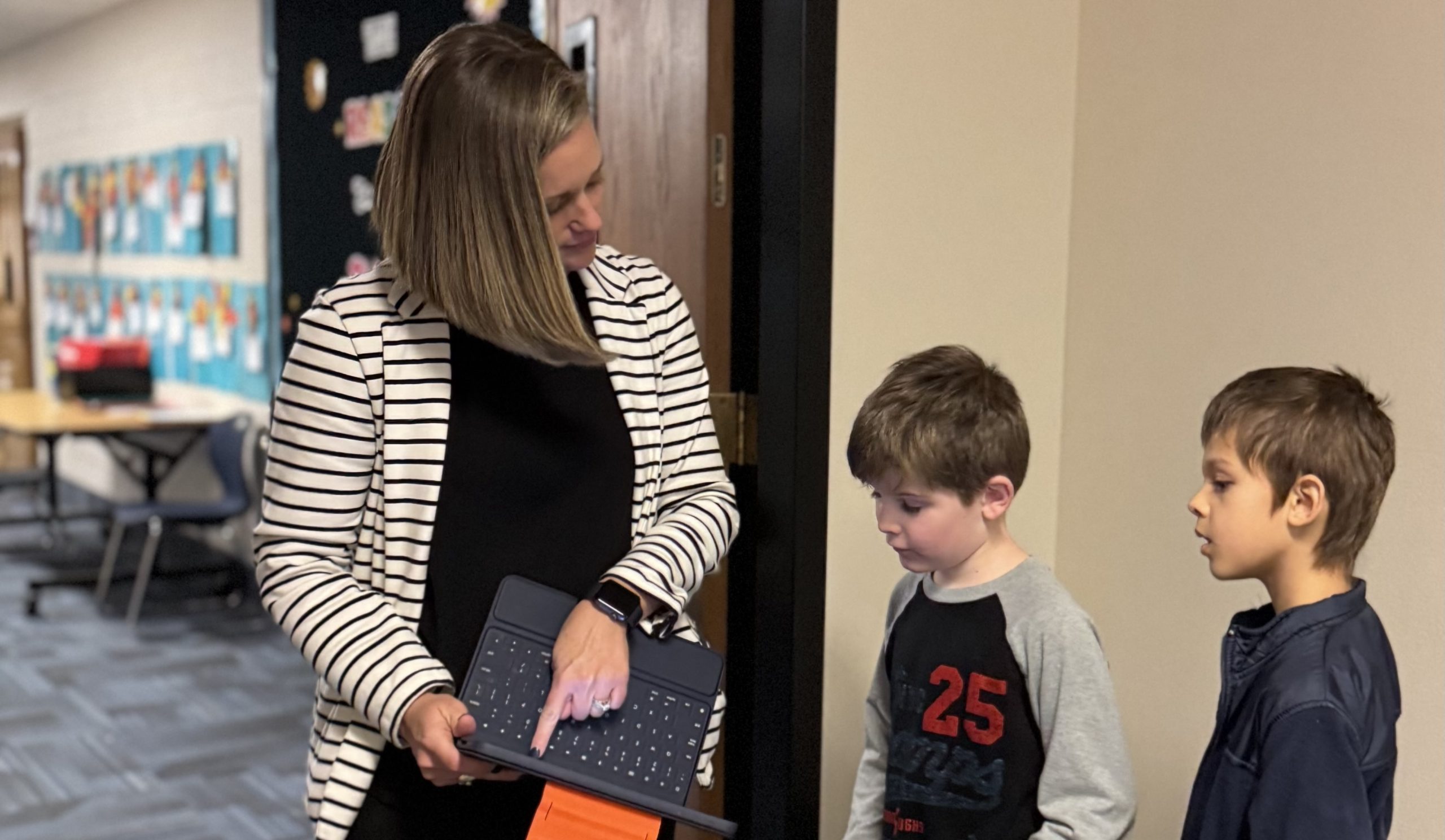
GC Superintendent Dr. Harold Olin said the book study has been eye-opening for GC staff members and parents. Although there are numerous advantages to digital devices, there are also clearly obstacles that parents need to be aware of.
